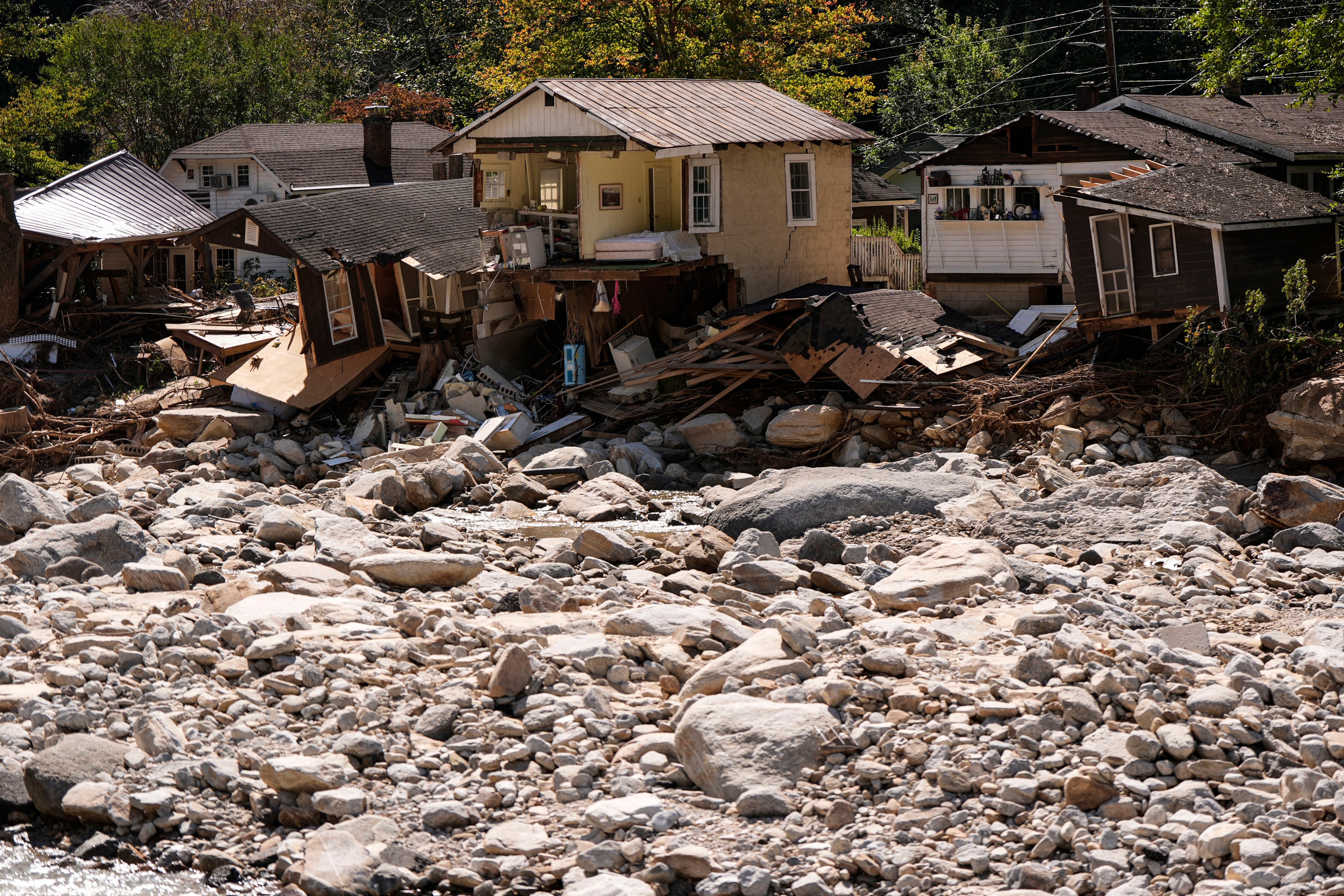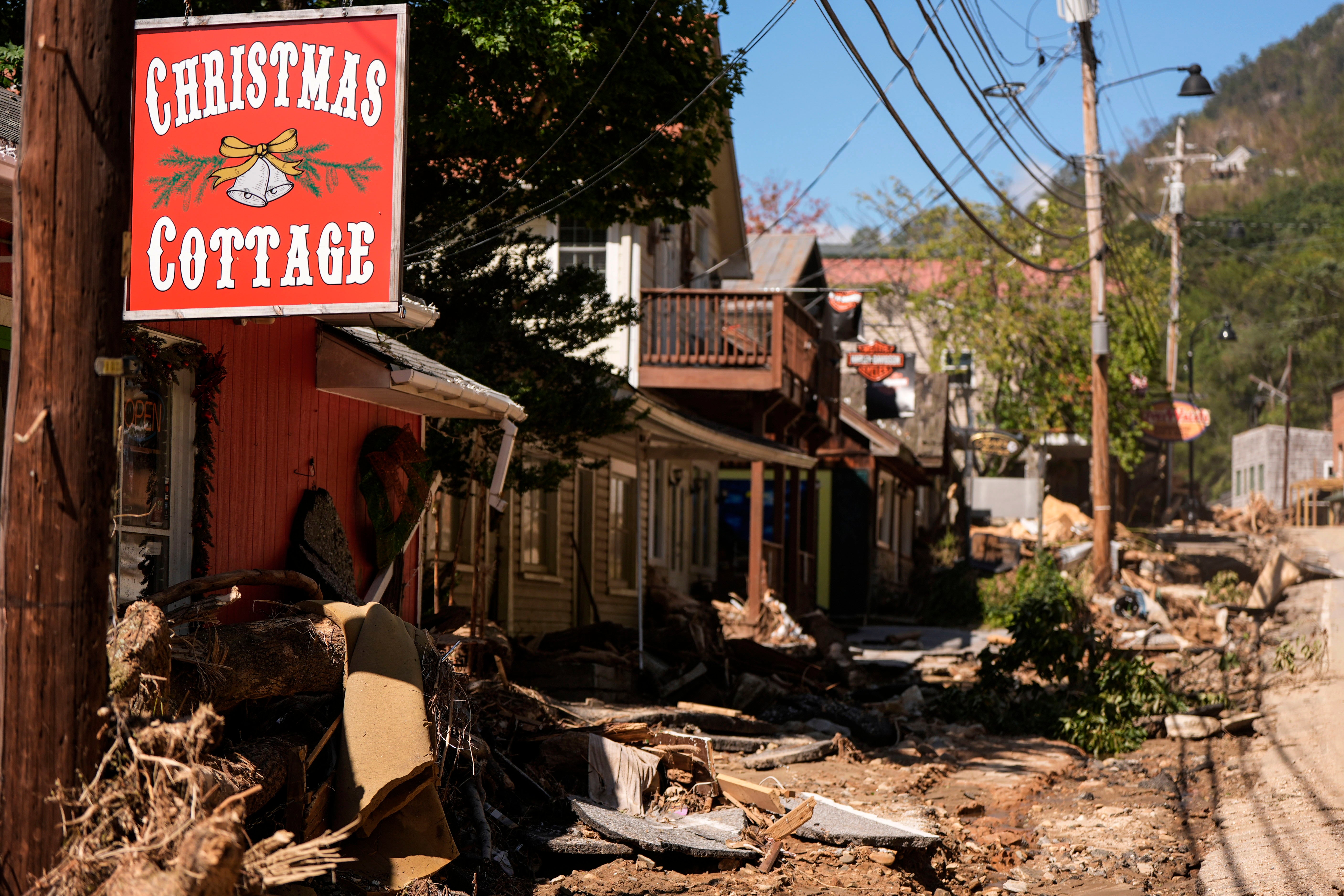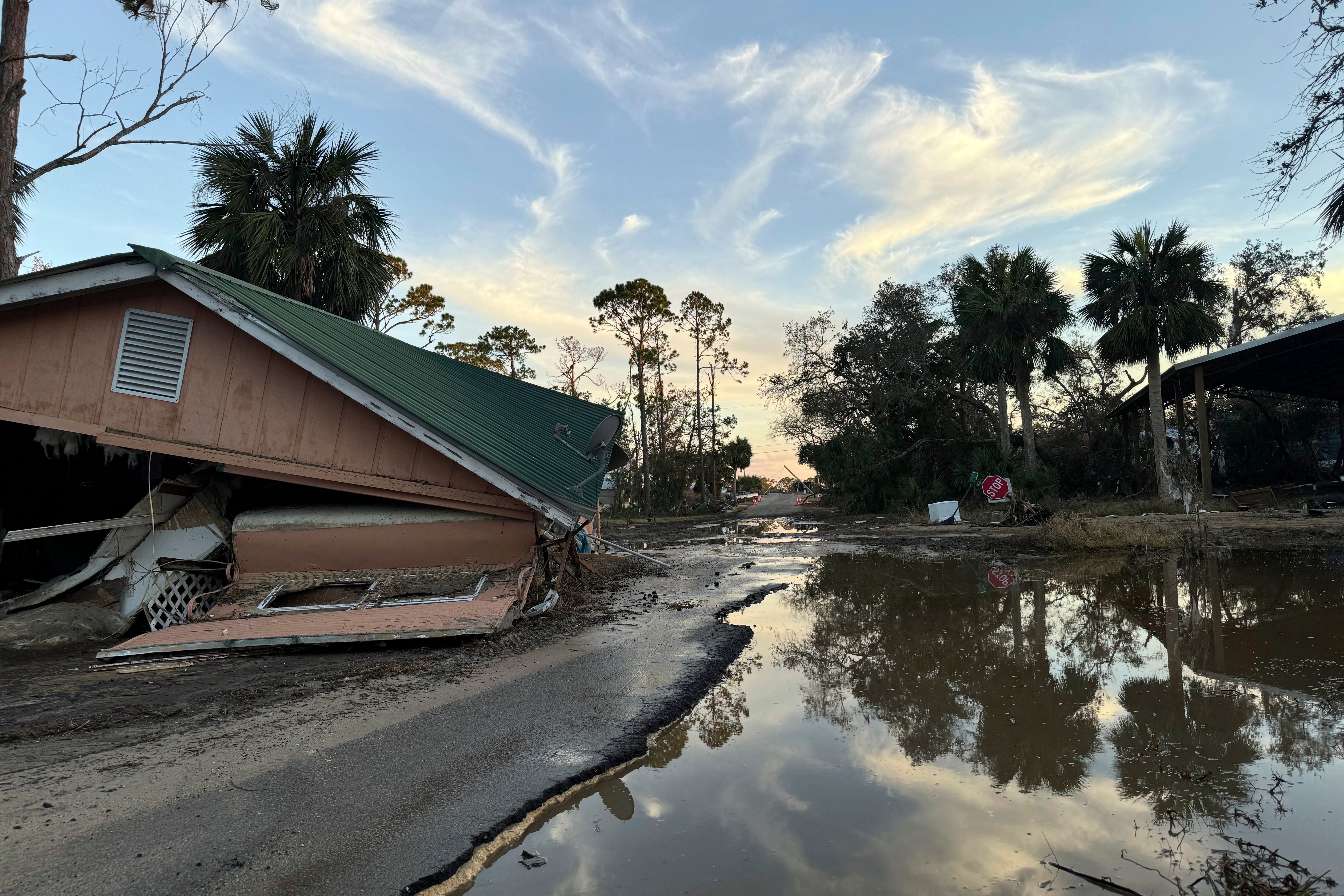Hurricane Helene death toll passes 200 across the six states most devastated by the storm
Hundreds more are still thought to be missing, though many may simply be disconnected from their families due to lack of power and communications, authorities have said
The death toll from Hurricane Helene has exceeded 200 across six states, as clean-up and recovery operations continue.
Hundreds more people are still thought to be missing, though many may simply be disconnected from their families due to lack of power and communications, authorities have said.
The majority of deaths were reported in North Carolina, which saw devastating flooding from swollen rivers, debris and landslides, along with South Carolina, Georgia, Florida, Tennessee, and Virginia.
According to an NBC tally, the death toll in North Carolina is now at least 98, with the majority coming from one area – Buncombe County.
The Asheville area within the county was devastated by the flooding, with raging rapids destroying homes, businesses and other critical infrastructure across the region. Footage showed residents clambering onto the roofs of their houses to escape.

The exact number of those that remain missing has not yet been released.
"First – search and rescue continues now for a seventh day. We’re continuing to find people," Buncombe County Manager Avril Pinder said Thursday. "We know we have pockets of people who are isolated due to landslides and bridges out. So, they are disconnected but not missing."
Pinder added that once search and rescue operations end, a true number of missing will be known. Some 840 volunteers have been deployed to check on over 6,000 “priority households,” and over 700 care packages have been distributed in the area.


So far 2,885 people have been found safe by volunteers, and 1,828 were confirmed safe through email and texts as of Wednesday.
As of Thursday, South Carolina has seen at least 39 deaths, with at least 19 more in Florida, 33 in Georgia, 11 in Tennessee and two in Virginia.
Helene is the second deadliest hurricane to hit the mainland United States since Hurricane Katrina made landfall in Louisiana’s Plaquemines Parish on August 29, 2005. The Category 5 storm killed nearly 1,400 people.
President Joe Biden traveled to Raleigh, North Carolina on Wednesday to meet with first responders and others affected by Helene.
Biden praised the Democratic governor of North Carolina, Roy Cooper and the Republican governor of South Carolina, Henry McMaster, for their responses to the storm, saying in the wake of disasters “we put politics aside.” ”No one can deny the impact of the climate crisis anymore,” Biden said, adding, “storms are getting stronger and stronger.”

It comes after another weather system, Hurricane Kirk strengthened into a Category 3 storm in the Atlantic Ocean on Wednesday, with forecasters reporting that is is expected to grow rapidly into a major hurricane.
There were no coastal watches or warnings in effect, and the storm system has not yet been deemed a threat to land.
The National Hurricane Center classified Kirk as a Category 3 storm on Wednesday when it was about 1,150 miles east-northeast of the Lesser Antilles, a group of islands in the West Indies. Maximum sustained winds of 120 mph were recorded, according to the center.
Join our commenting forum
Join thought-provoking conversations, follow other Independent readers and see their replies
Comments